 One of the greatest and most influential composers of the Western world, Bach created masterful works in almost every musical form known in his period. During his lifetime, Bach was better known as an organist than as a composer, and his works, which include the Brandenburg Concertos, four orchestral suites, and more than 200 church cantatas, were not fully appreciated until long after his death. Bach is the most represented composer on the Voyager Golden Record, which is what? Discuss
One of the greatest and most influential composers of the Western world, Bach created masterful works in almost every musical form known in his period. During his lifetime, Bach was better known as an organist than as a composer, and his works, which include the Brandenburg Concertos, four orchestral suites, and more than 200 church cantatas, were not fully appreciated until long after his death. Bach is the most represented composer on the Voyager Golden Record, which is what? Discuss
Source: The Free Dictionary
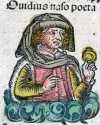 Publius Ovidius Naso, a Roman poet better known as Ovid, is ranked alongside Virgil, Horace, and others as one of the canonical poets of Latin literature. He was a great storyteller whose writings generally deal with the themes of love, mythology, and exile. No other Latin poet wrote so naturally in verse or with such sustained wit, and his works had a decisive influence on European art and literature for centuries. Why did Augustus banish Ovid in 8 CE?
Publius Ovidius Naso, a Roman poet better known as Ovid, is ranked alongside Virgil, Horace, and others as one of the canonical poets of Latin literature. He was a great storyteller whose writings generally deal with the themes of love, mythology, and exile. No other Latin poet wrote so naturally in verse or with such sustained wit, and his works had a decisive influence on European art and literature for centuries. Why did Augustus banish Ovid in 8 CE? 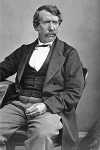 David Livingstone, a Scottish missionary and explorer, was the first European to cross the African continent. Among his many discoveries are the Zambezi River and Victoria Falls. Though he aimed to facilitate the abolition of the slave trade by opening Africa to commerce and missionary stations, he inadvertently contributed to the “Scramble for Africa” instead. He is the subject of the popular quotation, “Dr. Livingstone, I presume?” Who uttered the famous phrase upon meeting him in 1871?
David Livingstone, a Scottish missionary and explorer, was the first European to cross the African continent. Among his many discoveries are the Zambezi River and Victoria Falls. Though he aimed to facilitate the abolition of the slave trade by opening Africa to commerce and missionary stations, he inadvertently contributed to the “Scramble for Africa” instead. He is the subject of the popular quotation, “Dr. Livingstone, I presume?” Who uttered the famous phrase upon meeting him in 1871? 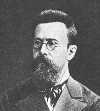 Rimsky-Korsakov, a Russian composer noted for his skill in orchestration, completed his first symphony at the age of 21, while serving as a midshipman with the Imperial Russian Navy. In 1871, he became a professor at St. Petersburg Conservatory, and he taught many famous future composers, including Igor Stravinsky. As a member of a group of nationalist composers known as “The Five,” Rimsky-Korsakov aimed to write music of distinctively Russian character. What often inspired his work?
Rimsky-Korsakov, a Russian composer noted for his skill in orchestration, completed his first symphony at the age of 21, while serving as a midshipman with the Imperial Russian Navy. In 1871, he became a professor at St. Petersburg Conservatory, and he taught many famous future composers, including Igor Stravinsky. As a member of a group of nationalist composers known as “The Five,” Rimsky-Korsakov aimed to write music of distinctively Russian character. What often inspired his work? 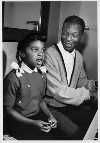 Originally a jazz pianist, Nat King Cole performed in Los Angeles nightclubs with his trio in the 1930s but did not achieve commercial success until he began singing. His warm, velvety voice brought a personal touch to his ballads, and he became internationally popular for his broodingly romantic hits, such as “Unforgettable.” He went on to become one of the first African-American artists to star in a radio show and to host a network television show. How did he get the nickname “King”?
Originally a jazz pianist, Nat King Cole performed in Los Angeles nightclubs with his trio in the 1930s but did not achieve commercial success until he began singing. His warm, velvety voice brought a personal touch to his ballads, and he became internationally popular for his broodingly romantic hits, such as “Unforgettable.” He went on to become one of the first African-American artists to star in a radio show and to host a network television show. How did he get the nickname “King”? 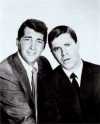 Lewis, an entertainer known for his slapstick comedy, became popular in the 1940s through his partnership with Dean Martin. They performed together in nightclubs as well as 17 films before parting ways in 1956. Lewis then went on to direct and star in The Nutty Professor and many other movies. He left filmmaking in the 1970s to focus on supporting and fundraising for the Muscular Dystrophy Association (MDA). Who was responsible for reuniting Martin and Lewis during a 1976 MDA telethon?
Lewis, an entertainer known for his slapstick comedy, became popular in the 1940s through his partnership with Dean Martin. They performed together in nightclubs as well as 17 films before parting ways in 1956. Lewis then went on to direct and star in The Nutty Professor and many other movies. He left filmmaking in the 1970s to focus on supporting and fundraising for the Muscular Dystrophy Association (MDA). Who was responsible for reuniting Martin and Lewis during a 1976 MDA telethon?  Nicknamed the “Thurgood Marshall of women’s rights,” Ruth Bader Ginsburg graduated at the top of her class at Columbia Law School in 1959. During the 1970s, she became the first tenured female professor at Columbia, led the Women’s Rights Project, and won several important Supreme Court cases before she was appointed to the US Court of Appeals in 1980. Confirmed as a justice of the Supreme Court in 1993, she was the second woman to sit on the nation’s highest bench. Who was the first?
Nicknamed the “Thurgood Marshall of women’s rights,” Ruth Bader Ginsburg graduated at the top of her class at Columbia Law School in 1959. During the 1970s, she became the first tenured female professor at Columbia, led the Women’s Rights Project, and won several important Supreme Court cases before she was appointed to the US Court of Appeals in 1980. Confirmed as a justice of the Supreme Court in 1993, she was the second woman to sit on the nation’s highest bench. Who was the first? 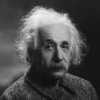 Einstein was an intellectual giant of the 20th century whose name has become synonymous with genius. Recognized as one of the greatest physicists of all time, Einstein made countless important contributions to physics, including his theories of relativity, which profoundly revolutionized scientific and philosophical inquiry. In 1921, he received the Nobel Prize for his work on theoretical physics. Though he sought it for decades, Einstein never discovered a unified field theory, which is what?
Einstein was an intellectual giant of the 20th century whose name has become synonymous with genius. Recognized as one of the greatest physicists of all time, Einstein made countless important contributions to physics, including his theories of relativity, which profoundly revolutionized scientific and philosophical inquiry. In 1921, he received the Nobel Prize for his work on theoretical physics. Though he sought it for decades, Einstein never discovered a unified field theory, which is what? 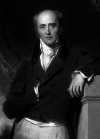 Charles Grey was a British statesman elected to Parliament in 1786 at the age of 22. He went on to become one of the leaders of the Whig party and eventually served as prime minister from 1830–34. His tenure saw the passage of the Reform Bill of 1832, which reshaped the parliamentary representative system, and the abolition of slavery throughout the British Empire. He is perhaps best remembered as the namesake of the Earl Grey blend of tea. What once knocked the head off a statue of him?
Charles Grey was a British statesman elected to Parliament in 1786 at the age of 22. He went on to become one of the leaders of the Whig party and eventually served as prime minister from 1830–34. His tenure saw the passage of the Reform Bill of 1832, which reshaped the parliamentary representative system, and the abolition of slavery throughout the British Empire. He is perhaps best remembered as the namesake of the Earl Grey blend of tea. What once knocked the head off a statue of him? 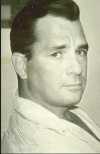 Considered the father of the Beat movement, Jack Kerouac was an American novelist whose semiautobiographical, “spontaneous prose” reflects a frenetic, restless pursuit of new sensation and experience and a disdain for the conventional measures of economic and social success. His best known works are The Subterraneans, The Dharma Bums, and On the Road, which is widely considered the testament of the Beat Generation. Why was Kerouac arrested in connection with a 1944 murder?
Considered the father of the Beat movement, Jack Kerouac was an American novelist whose semiautobiographical, “spontaneous prose” reflects a frenetic, restless pursuit of new sensation and experience and a disdain for the conventional measures of economic and social success. His best known works are The Subterraneans, The Dharma Bums, and On the Road, which is widely considered the testament of the Beat Generation. Why was Kerouac arrested in connection with a 1944 murder?